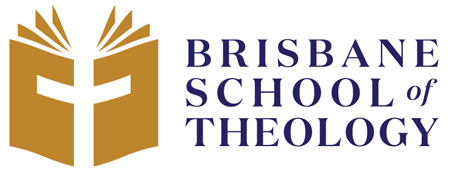August 2024 Update
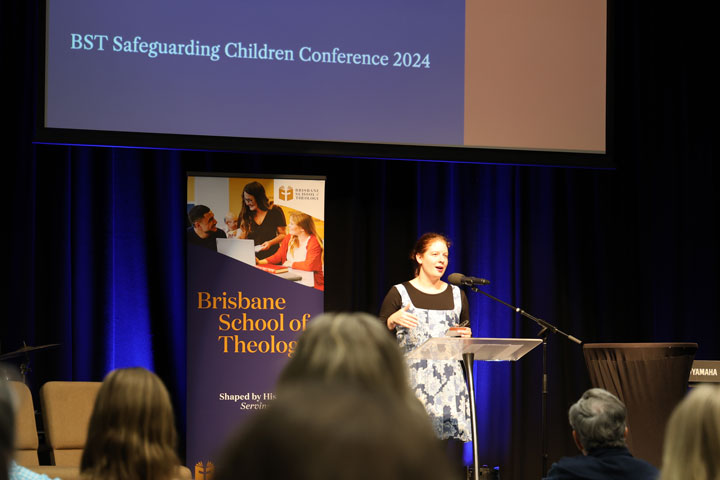
Safeguarding Children Conference: Key takeaways and vital conversations
We’re thrilled to share the highlights from our BST Safeguarding Children Conference held on 10 August! This year’s event was a resounding success, selling out and nearly doubling last year’s attendance with 60 participants from various churches and denominations. It’s clear that creating safe spaces for children is a mission that resonates deeply within our communities.
Our conference featured an incredible lineup of speakers who shared their expertise on crucial topics related to child safety. The energy and commitment from everyone involved were truly inspiring:
Rev. Dr. Richard Gibson opened the day with his session, “Dear Church, We Need to Talk…About Correctly Handling the Word of God for the Sake of Our Children.” As BST’s principal and a seasoned pastor with over 30 years of experience, Richard highlighted the importance of aligning our theology and messages to foster safer environments for children. His talk was so well received that many attendees requested copies of his notes to share with their congregations.
Jenni Woodhouse followed with “Dear Church, We Need to Talk…About Protecting Kids in Emotionally Abusive Homes.” An experienced social worker, Jenni guided us through practical scenarios of domestic and family violence in Christian communities. Her session provided valuable insight into some of the hidden struggles that families and children can face.
Detective Senior Constable Scott Meehan rounded out the day with “Dear Church, We Need to Talk…You’ve Called the Police; Now What?” With over 20 years of experience investigating child abuse cases, Scott offered crucial insights into the process following a child abuse report. His session sparked so much discussion and follow-up questions that we are hosting a Zoom session with Scott to answer our attendees’ questions.
Looking Ahead
We trust that attendees left with actionable ideas and a renewed motivation to enhance child safety in their communities. Safeguarding children is an ongoing journey that requires continuous learning and proactive measures.
Join Us for More Learning
We’re excited to announce that our Safeguarding Children Unit will be available in February 2025. This unit, with evening classes to fit your schedule, is an invaluable resource for Christian leaders dedicated to protecting and nurturing children. You’ll explore best practices for safeguarding children in churches and Christian organisations, and learn how to prepare your community for both prevention and effective response to crises.
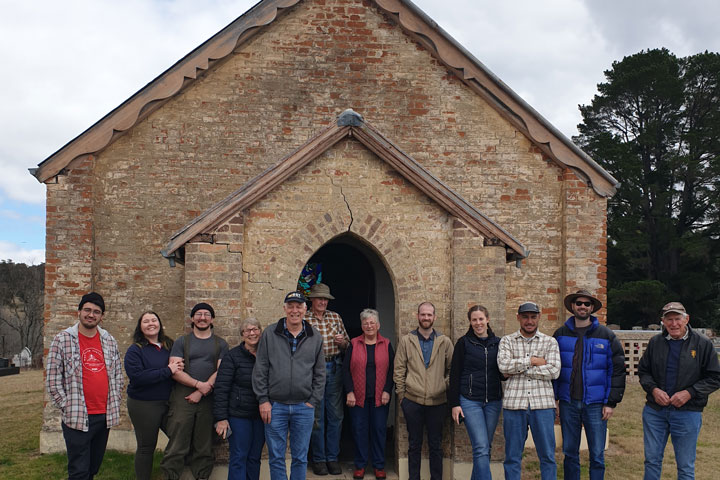
Mission Exposure Week: A Transformative Experience
We’re thrilled to share the incredible experiences our students had during Mission Exposure Week! This year, we sent out three dedicated teams to dive into real-world ministry and make a meaningful impact.
Team One: Oberon Anglican Parish
One team travelled 13 hours to Oberon Anglican Parish in rural NSW, where they were warmly welcomed by our own BST alumnus, Rev. Jonny Lush. They experienced a close-up view of rural church life and saw how the parish is growing in faith and numbers under Jonny’s guidance. From pastoral visits and performances at a local nursing home to engaging conversations with locals, this experience offered valuable insights into the challenges and rewards of rural ministry.
Team Two: Oasis Church, Brisbane
In Brisbane, another team was hosted by BST alumnus Stephen Khu at Oasis Church. Their week was packed with outreach activities, including teaching Religious Instruction (RI) in schools, supporting chaplains, and participating in youth and life group ministries. They also shared their personal testimonies and insights with the church community, providing a vibrant look into urban ministry.
Team Three: Power to Change at UQ and QUT
The final team partnered with Power to Change at the University of Queensland and Queensland University of Technology, guided by alumnus Lo-wei. They focused on building relationships with international students, sharing the love of God, and spreading the gospel message. Their week was filled with meaningful conversations that extended warmth and friendship, sparking important dialogues about faith.
Our students returned encouraged. These trips are a key part of our curriculum, offering real-world ministry experience and preparing them for their future roles in Christian service. We’re grateful for the support from our alumni and the warm reception from the communities that hosted our teams.
Don’t miss out—follow BST on Facebook and Instagram for student vlogs showcasing their incredible journeys in the coming weeks!
July 2024 Update
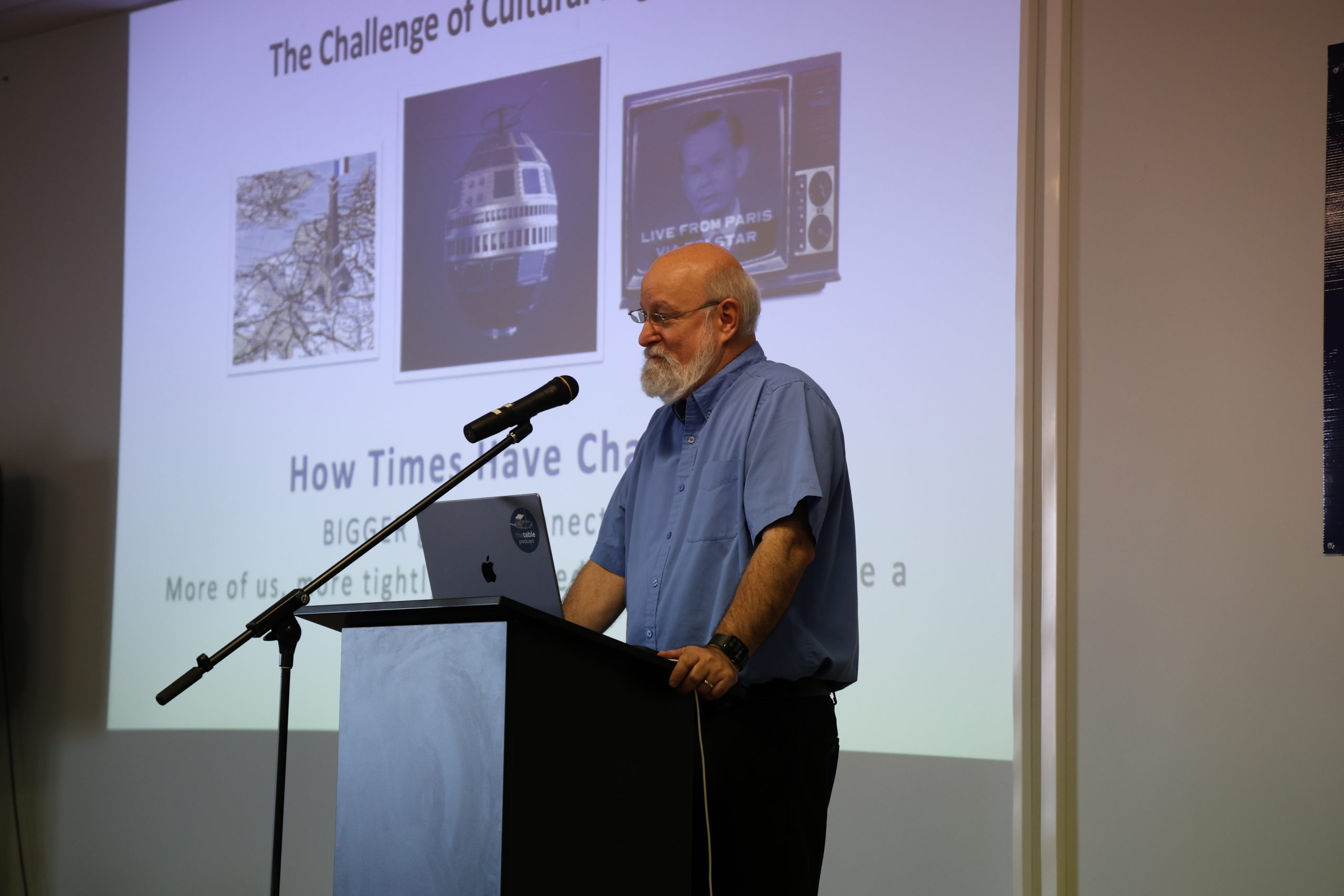
Navigating Faith in a Hostile Culture: Insights from Darrell Bock
At our recent Public Lecture and Q&A session, renowned New Testament scholar Darrell Bock addressed a pressing question: How should we interact with a culture that is either indifferent or openly hostile to faith? In his talk, “Anchored Faith, Changing Culture: Christianity in a Diverse World,” Bock examined six New Testament passages, advocating for a relational approach to cultural engagement characterised by compassion, respect, and kindness. He emphasised that, unlike the divisive culture wars of recent times, this approach mirrors Jesus’ own method of addressing us—not as adversaries to defeat or problems to solve, but as lost sheep in need of a caring shepherd.
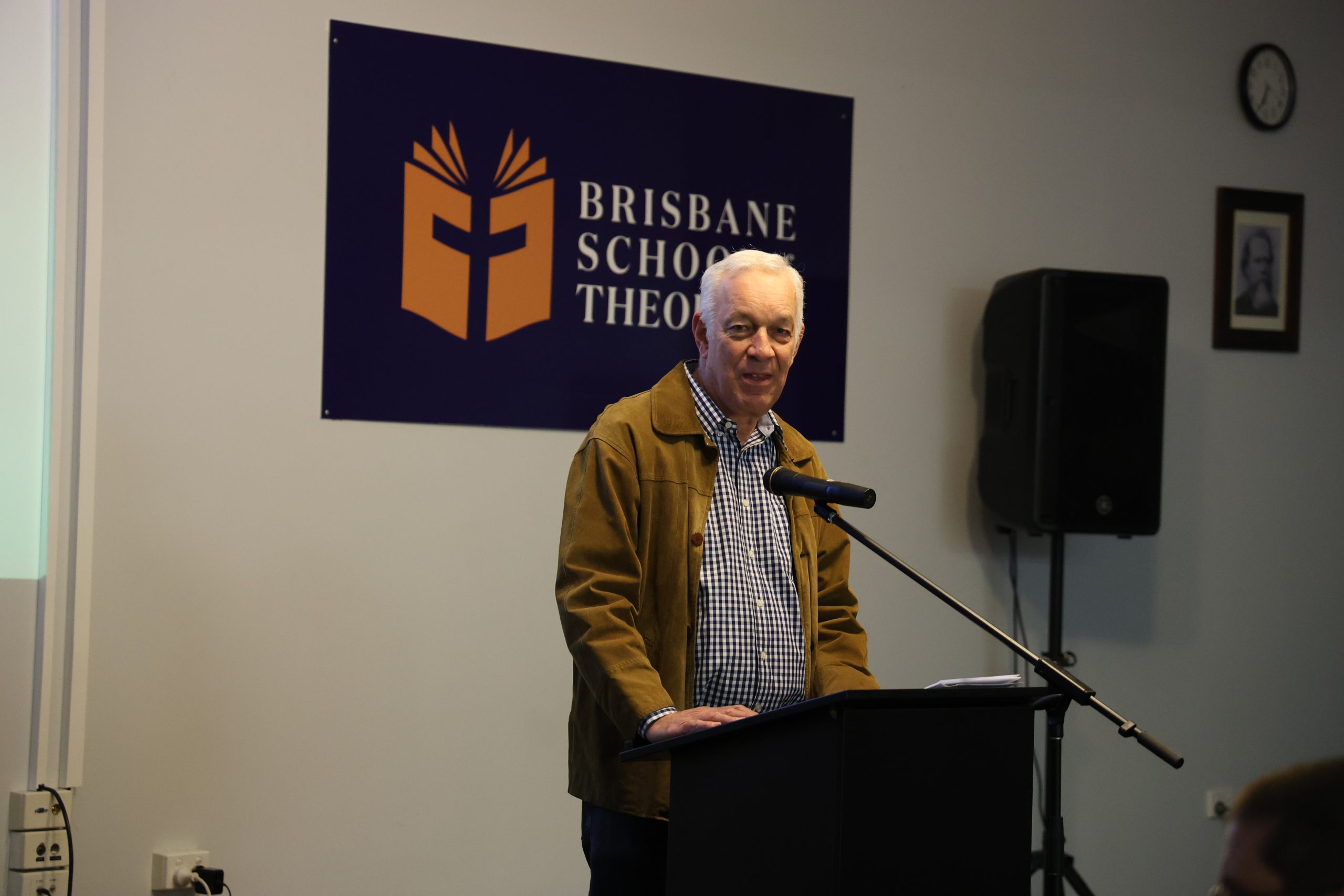
A Heartfelt Celebration at Our Alumni Dinner
Our recent Alumni Dinner was a memorable event, celebrating our shared commitment to faith and community. The evening was marked by a profound sense of unity and a collective dedication to God’s Word and ministry. We came together to build meaningful connections and seek God’s guidance for our various ministries.
A special highlight was honouring Deputy Principal John Coulson, who has devoted nearly 25 years to BST. Attendees contributed heartfelt ‘Dear John’ letters, which will be compiled into a gift book to celebrate his enduring impact and leadership.
Keynote speaker Andrew Bryan shared a compelling vision for ministry among university students, encouraging us to think about how we can empower the next generation to spread the message of Jesus.
The Alumni Dinner reaffirmed that BST is more than just a place of learning—it is a close-knit family united in faith and passionate about fulfilling God’s mission.

Expanding Biblical Horizons: A Review of Marvin Newell's "Crossing Cultures in Scripture"
Sometimes you come across a book that challenges how you read the Bible. Misreading Scripture with Western Eyes: Removing Cultural Blinders to Better Understand the Bible (2012) was one such book. It has helped me better understand the impact my own background and culture had on the way I interpreted Scripture. In a similar vein, Marvin Newell’s Crossing Cultures in Scripture: Biblical Principles for Mission Practice has had a significant impact on my way of reading the Bible.
Marvin J. Newell is a missiologist who served for 21 years in East and Southeast Asian cross-cultural ministry contexts. He previously served as a professor and chair of the Intercultural Studies program at Moody Theological Seminary. Newell notes that while many books have been written on culture from anthropological, sociological, and intercultural perspectives, he found no volume dedicated solely to providing a biblical theology of culture. This observation led him to write Crossing Cultures in Scripture.
The Bible is a cross-cultural book, from Genesis to Revelation, and records many cross-cultural encounters. In Crossing Cultures in Scripture Newell takes a selection of biblical texts and draws principles for engaging in cross-cultural ministry.
Chapters 1-4 of the book set the scene for the rest and provide foundational principles concerning culture from Genesis 1-11. He provides a relatively standard definition of culture as “the distinctive beliefs, values, and customs of a particular group of people that determine how they think, feel, and behave,” (p. 17). Newell examines Genesis 1:26–27 and offers unique insight by grounding culture in the Trinity. He states that “the relationship among the three personalities” active at creation constitutes something of “a divine culture between them” (p. 23). He further adds that something of this divine culture was “bestowed” upon humankind at the creation of Adam (p. 24). While the validity of this insight doesn’t impact the book’s overall argument, I nevertheless found it an intriguing hypothesis.
Chapters 5-20 of the book consider examples of crossing cultures in the Old Testament. Each chapter offers stand-alone principles that do not necessarily relate to or build on principles elucidated in earlier chapters. A consideration of one chapter, that of Abraham’s interaction with the Hittites in Genesis 23:1-19 will illustrate the general approach of other chapters. Newell states, “Genesis 23 records the first extended conversation in Scripture between people of different cultures” (p. 57). The chapter is titled, “Needing a favour in a foreign land.” Following a cultural reading of Genesis 23, Newell suggests seven principles that stem from it: admit your vulnerability (Gen 23:4), remember who you are (Gen 23:4; Heb 11:8-10; 13-16), build cross-cultural collateral (Gen 23:6), show respect (Gen 23:7, 12), don’t expect an exception (Gen 23:16), get a record of the agreement (Gen 23:20), and know your arrangement will have an effect on others (cf. Gen 49:31-32).
Chapters 21-36 examine the crossing of cultures in the New Testament. They mostly examine narratives in the Gospels and Acts, such as Jesus and the Samaritan woman (John 4), Jesus and Pontius Pilate (John 18:28–19:16), and Phillip and the Eunuch (Acts 8); yet, this third section considers many passages from the epistles as well, from which Newell develops cross-cultural principles.
I think this book has some great strengths. Newell writes clearly, winsomely, and is easy to follow. The theory is grounded in experience. Most chapters begin with an example from the life of the author, another person, or world events that highlight the cultural issue the particular chapter addresses. The book also delivers on its subtitle, with each chapter articulating several clear principles that pertain to ministry in a cross-cultural setting. That being said, there were a few occasions when I felt the elucidated principle, as helpful as it might be, was not legitimately derived from the particular biblical text. Overall, Crossing Cultures in Scripture is an excellent book that will challenge and develop your understanding of Scripture more broadly.
Reviewed by Rev Dr Andrew Prince, BST
Building a better BST
Our campus is buzzing with life and learning, we have brought on new staff to better serve the college community, and our student accommodation is once again nearly fully occupied. With this growth, however, comes the need to ensure that our facilities remain safe, comfortable, and conducive to academic and spiritual formation.
In our continuous effort to improve our campus, we have identified—thanks to our Property Manager and Residential Chaplain, Mark Cameron—several critical projects that require attention. These projects will not only enhance the living and learning environment for our students but also ensure their safety and well-being.
Today, we’re asking you to consider giving a tax-deductible gift to help us meet our goal of $85,000 by 30 June to complete this work.
Here are some of the ways your gift can be put to work around the college…
McConaghy House
Security and safety for our students is very important, and we have identified a need to install security screens and windows for McConaghy House (one of our student accommodation buildings), at a cost of $3,000.
Proper drainage and gutter systems are essential to maintaining the integrity of our buildings. The current drains and downpipes are full of roots and leaf-matter, needing a good clean out, and the gutters are corroded throughout. This is an area where McConaghy House is no longer up to standard. We also plan to paint the eaves and barge boards to freshen up the look of the place, which will require scaffolding as well. This extensive project will require $9,000.
Block A (Family Units)
We aim to renovate the kitchen in one of our family units to provide a modern, functional space for our students to prepare their meals. The current kitchen is around 40 years old, and not sufficient to the task. We will be installing new benches and cupboards, splashback, and potentially a new oven and rangehood. This project will cost approximately $16,000.
The bathroom in one of our two-bedroom family units is in dire need of renovation. This will involve completely stripping out the existing bathroom facilities, and installing new shower, toilet, vanity, tiles, paint, waterproofing, and drainage. We will also take the opportunity to repaint the entire unit. This project will cost around of $18,000.
Ensuring the safety of children on our campus is paramount. Some parts of the fence around our Families block have fallen into disrepair, and need to be fixed or replaced to create a secure environment, which will cost approximately $3,500.
Library
To improve energy efficiency and create a better study environment, we plan to replace the standard light fixtures in part of the library with LED tubes. Each LED tube costs $125, and we are hoping for at least 24 of these in this initial phase.
Dining Hall
Last year, we carpeted the dining hall to make it a more warm and inviting room. Unfortunately, even with this improvement, it’s still a very loud and echoey space, which makes large gatherings for meals a very noisy affair. Just as we did with the Judson room in 2023, we want to install acoustic panelling throughout the dining hall and repaint the area, to reduce the echoes and make it an even more pleasant space to gather for community meals. This project carries a cost of $9,500.
Additional Works
There are some very old skylights in the Administration building and Blocks A and B that need to be completely replaced. In recent years these have begun to leak, causing water damage and mould to grow in those spaces. The new skylights will also allow more natural light to flood these areas, enhancing the overall atmosphere. This project is estimated to cost $11,000.
With a growing team of staff and faculty at BST, we have a new issue; finding space for everyone to work together! To assist with this, we are completely renovating an old storage space behind the staff room to become a ‘hot desk’ area where part-time staff can utilise desk space, or for small teams to gather for meetings. To make this a useable office, we need to install air-conditioning, carpet, electrics, furniture, and repaint the space. This will cost around $12,000.
This is by far the most ambitious and wide-ranging set of works we have undertaken at BST in many years, and we are blessed to have someone as capable and committed as Mark Cameron to spearhead these efforts—most of which he will undertake personally.
As you can see, the vast majority of these goals are geared towards improving the safety, security, comfort, and educational capacity of our students.
As we mentioned earlier, to accomplish these significant projects, we have a goal of raising $85,000 by 30 June—and we need your help!
Your generous support can make a significant difference in the lives of our students and the quality of their education. Every contribution, no matter the size, brings us closer to our goal and ensures that BST can continue to offer the best possible theological training experience to our students, as we have done for more than 80 years.
There are several ways you can help. You can give here to make a secure donation, or you can call us at 07 3870 8355 to make a donation over the phone. Your donation is tax-deductible, and it directly impacts our students and their future ministries.
Thank you for your continued support and prayers for our students, staff, and faculty. Together, we can create a vibrant, nurturing environment that shapes future leaders for God’s kingdom.

BST faculty out and about
We are blessed with a wonderful, committed, learned faculty at BST; men and women who love God’s Word, and love to share it with the world. If you’ve been in some of their classes, you know the kind of wisdom and relevant teaching you can expect from them—but even if you haven’t been a BST student, chances are you could still benefit from their experience by inviting them to speak at your church. Just in the last couple of months, our lecturers have attended conventions and spoken at High School camps (Jason Bryan-Brown), met with a delegation from Uganda and spoken at the Oasis Church Women’s Event (Karen Nivala), shared at Enoggera’s Emmanuel Uniting Church camp (Andrew Prince), and given an Easter address for City Bible Forum (Robert Edwards)—and between them, along with our Acting Principal John Coulson and others, they have preached at a number of churches across South-East Queensland.
Because BST is an inter-denominational college, our faculty are regularly invited to speak to congregations of all stripes: from Baptists to Presbyterians, Anglicans, Pentecostals, Chinese Churches, and more. If you are interested in having one of our faculty share God’s Word at your church, contact our office on 07 3870 8355 and we’ll see what we can arrange!

We have no theology of cultural engagement, and we need one
The challenge of pluralism and living with so many different life options has paralysed the church. Whether one lives in the USA, where the once robust Judeo-Christian net of influence is now fraying badly, or in Australia, where it has been waning for a long time, the need for a theology of cultural engagement is immense. We do not have one but need it. The church has struggled with no longer being at the centre of Western culture. It’s like going from being the home team in a cricket match, footie, or rugby game (take your pick), to being the visitors who now are booed. Options abound as our society is now like a Middle Eastern bazaar with many different shops, some of which we might consider pretty bizarre.
While many of us emphasize the church being counter-cultural, this approach can drive people away and lead to a combative stance with people who are not the enemy but rather the goal. This approach resulted in what has been called the Culture Wars. I contend this misdirects the mission of the church. It risks losing sight of the Great Commission and the call to go into the world and make disciples. So how do we live with the differences we have with many of our neighbours? How can we approach them in a way that leads to meaningful conversations rather than immediate debate?
I hope to answer these questions in our Christian Engagement with Culture Unit in July, as we explore how to have meaningful, difficult conversations and connect with our neighbours who think differently than we do. Join us; I hope to see you there.
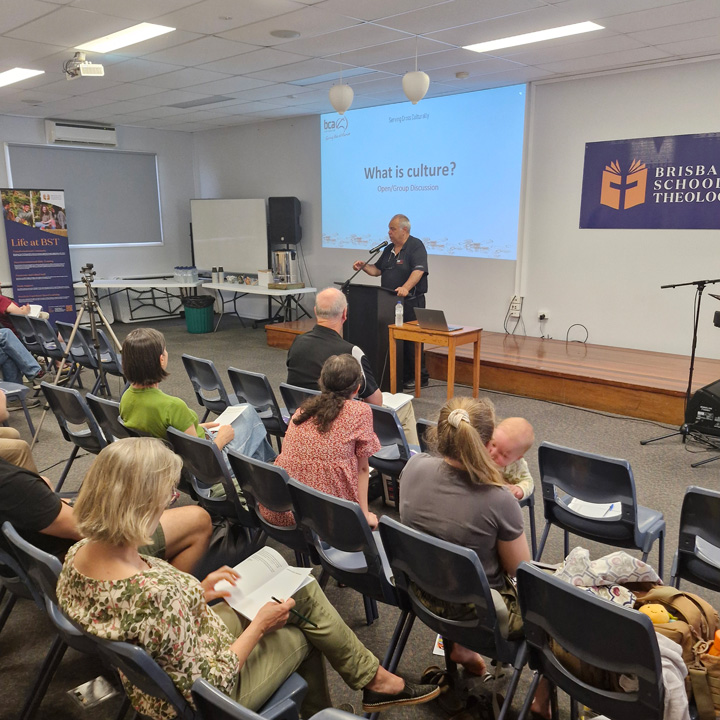
Indigenous Cultural Awareness Introduction
On Wednesday 17 April, Brisbane School of Theology joined forces with Neville Naden from Bush Church Aid to bring us a half-day presentation on Indigenous Cultural Awareness. There were a few key questions that drove the day: What is culture? What is Australian culture? What is the impact of privilege and power as it relates to First Nations communities? What are the Do’s and Don’ts of serving in the Indigenous space?
The day began by spending some time thinking about the definition of ‘culture’, and how we wrestle with that in a general sense (particularly in a very multi-cultural nation like ours). Next, Neville took the group through an exploration of the last 220 years, and the impact this has had on First Nations cultures.
We were reminded that when it comes to First Nations culture, there’s no such thing as just one ‘culture’; it’s a very broad and diverse context. It was a thought-provoking day that challenged many preconceptions and encouraged participants to meet, talk, and share with each other.

CAC Dinner & Appeal Wrap
As April draws to a close, our special appeal for the Centre for Asian Christianity also concludes with the end of this month. It has been exciting and encouraging to see the increased support for the Centre, and so far nearly $25,000 has been donated to support our work for the rest of this year, and beyond.
In one of the major highlights of the BST year, the Centre for Asian Christianity hosted its annual Fundraising Dinner on 18 April, this year with the theme of ‘Family Style Faith’. As well as enjoying a fantastic Indonesian banquet, our 50+ guests enjoyed a great time of fellowship (including making some paper ‘dumplings’ together) and learned about the many ways they are actively helping to accelerate Gospel growth in the Asian church through their generous support.
These funds are vitally important to the Centre as we continue to build and grow resources for Asian pastors and leaders, fund mission conferences, and commission speakers for online lectures and training sessions.
We set out with a goal of raising $40,000 in support by the end of April, so we are more than half way there. If you would still like to donate, even after the appeal has closed, you can give here.

Faculty Spotlight - Dr Jason Bryan-Brown
There’s a long-running joke at Brisbane School of Theology that Jason Bryan-Brown has been here since he was 14 years old. The reality is only slightly different to the fiction: Jason came to BST in 2012 as a fresh-faced 17-year-old, and has since completed his Bachelor of Ministry and Bachelor of Theology with BST, as well as his Honours in the Book of Revelation. After a few years serving as a pastor in Nambour, as well as sessional lecturing and tutoring at BST, last year Jason joined our full-time teaching faculty as the Lecturer in Bible… And today Jason formally graduated with his Doctorate, finally earning him the title of ‘Dr Bryan-Brown’.
We are thrilled for Jason and his family. Today’s graduation marks the end of a long journey and (we hope) is only the beginning of a much longer, and very fulfilling, new journey with BST.
Congratulations Dr Bryan-Brown!

Life-long learning tips: Falling in love with academic journal articles
As lifelong learners, we all have our preferred methods for engaging with new knowledge. Some might gravitate towards books, while others prefer podcasts or online blogs. But have you ever considered the benefits of academic journal articles?
I, Buffy, BST Librarian, could write a PhD thesis about the benefits and wonders of the academic journal article. However, that would defeat the purpose, as the beauty of journal articles is to get straight to the point, so shall I.
Let me present you with my findings, in the style of a journal article, on why you should be reading academic articles, no matter who you are.
Abstract:
This article explores the often-overlooked benefits of academic journal articles. Through analyzing user needs versus resource features, three significant advantages of academic journal articles have been identified. These advantages make academic journal articles efficient and effective tools for engaging with the “meat” of any subject matter (compare with the Apostle Paul, 1 Corinthians 3:1-2).
Introduction:
As stated by the Apostle Paul, it is essential for Christians to actively engage with the teachings of the Word of God (Colossians 3:16) and exercise caution regarding the sources from which they learn about spiritual matters (Ephesians 4:14). Therefore, it is quite common to find Bible-believing Christians reading a variety of devotional books, subscribing to Christian blogs, and downloading faith-based podcasts on their phones to deepen their knowledge and understanding of theology.
However, I have largely found a reluctance to engage with academic journal articles – even among theological students. This raises the question: do academic journal articles have anything to offer as a means of learning more about God’s Word? And if so, how?
Findings:
Let’s take a closer look at the three key advantages of academic journal articles:
- They’re short. Academic articles are written for people in a rush and can be read in the time it takes to finish a cup of coffee or lose 5 lives in Candy Crush. Unlike other resources that include lengthy introductory chapters about irrelevant topics like the author’s latest camping trip, journal articles get straight to the point with a concise abstract that lays out the main points of the article even before you start the introduction.
- They have a point. Academic journal articles are not written for the sake of writing but to make a point. To be published, at least one other person had to think it would interest the audience and that the author was qualified to make that point.
- They’re up-to-date and well-thought-through. Professionally published books can take years from the author finishing it to you receiving it. On the other hand, many blogs, social media posts and podcasts can be uploaded before the authors even have a chance to think better of it. Quality academic journal articles go through a rigorous and timely review process before they’re published, ensuring that the information is of the highest quality.
Discussion:
Many may ask: how can the average reader know if the journal is quality?
Good question – some complex metrics can be analysed and deep research done to determine their validity. However, who has the time for that? Well, the BST librarian, for one.
As a token of appreciation for reading this article, I would like to share a document specifically created for BST students: the Open Access BST Journals.
This is a list of journals BST has paid to subscribed to in the past, that are now available for anyone to access (either in full or back issues). The journals have been graded based on their ranking by the ACT or Australian Research Council, with A* (well above world standard) to C (at world standard) grades.
Conclusion:
In conclusion, academic journal articles may not be the most glamorous form of learning but they are certainly one of the most effective. By taking advantage of their short length, clear purpose, and timeliness, you can deepen your understanding of theology and God’s Word. So, the next time you’re looking for a new source of knowledge, consider giving academic journal articles a chance.
Before clicking through to an unverified blog, why not try one of these top journals that are openly available and worth keeping an eye on:
Australian Journal of Mission Studies: issues from 2007 – 2 years ago are available from their archives.
International Journal of Frontier Missions: issues from 1984 – now are available on their website.
Journal of the Evangelical Theological Society: issues from 1958 – 2 years ago are available from their archives.
Ministry: International Journal for Pastors: issues from 1928 – now are available on their website.
Themelios: an international journal for theological and religious studies students: all issues are freely available on the Gospel Coalition website.
Tyndale Bulletin: all issues are freely available on their website.
Logos & Pneuma 道風:基督教文化評論 This Chinese academic journal is available, excluding the last 2 years, on the Logos & Pneuma website.
And in case you’re afraid that all journal articles must be boring, here’s a link to an article in the latest issue of the Australian and New Zealand Theological Librarians Association e-journal, entitled: Life-Loving Libraries. I promise you’ll have a smile on your face by the end.
March 2024 Update

College Camp
It’s not every day that a college cancels classes for a week to indulge in activities such as playing board games, swimming, and building relationships. However, at BST, College Camp is an essential event on our academic calendar.
The purpose of College Camp is to intentionally prioritize the heart-knowledge of Christ and his teachings alongside academic knowledge. We believe that attending Bible College is not just about academic learning, but also about being transformed into the image of Christ. One of the key ways God brings about that transformation is through our relationships with one another.
Through games, chats, prayer, and worship, we build a community that allows us to practically work out our faith and academic learning. It was a joy to spend time together at Camp earlier this month, and we are looking forward to seeing the fruit that time will bring to our formation in Christ.

"Commissioned by Christ"
On Thursday, 21 March, we celebrated with our class of 2023 at City North Baptist Church as they formally graduated from Brisbane School of Theology. 42 students completed their awards; while some will continue on with further studies, it’s always a bitter-sweet night with many farewells and, for some, a sense of a chapter concluding at last.
As always, though, this is ultimately a time where we rejoice with our students in their accomplishments, and look forward to where God will direct them in their future lives and ministries. For some, this will mean a call to formal pastoral ministry, or mission work; for others, school chaplaincy, or counselling, or a return to their church and workplace with a renewed sense of passion and zeal for God’s word.
We thank God for each person who chose to spend so much of their time, energy, and heart with this college and their fellow students. We remain firmly committed to face-to-face, on-campus learning, and it’s nights like graduation that remind us why this is so important.
Each of our graduates prepared a short statement about what was most meaningful to them about their time at BST, and one of our graduates, Luisa Laughren, summed up the ethos of BST like this:
“During my time at BST, I have developed a profound awareness of the crucial nature of belonging to an authentic and loving community rooted in faith commissioned by Christ in honouring God’s mission.”
Please join us in praying for our new graduates as they continue to be shaped by God’s word, and serve his world, for many years to come.

Centre for Asian Christianity Appeal
The CAC relies on the generous support of friends like you to continue our mission of accelerating Gospel growth in the Asian church.
Over the next four weeks, we’ll be asking you to help us fulfil that mission. We are praying for $40,000 in gifts to help support the Centre for the next year. Your tax-deductible gift today will help fund more missions conferences, see more books and resources published in Asia, bring together key church leaders in Australia, and fuel new ministry opportunities in Brisbane, Sydney, Melbourne, and around the world.
If you have a heart for the Asian church, I hope you will give as generously as you are able to help us meet this $40,000 goal and support the Centre’s work in 2024.
Even if you can’t give financially today, I ask that you please hold the CAC in your prayers.
Specifically, please pray for wisdom and strategic allocation of funds as we determine which of the many needs and opportunities the Centre should focus our efforts towards; and pray for the Asian church, which is lacking resources on many fronts but also has immense opportunities, and is experiencing tremendous growth. Pray for God to provide nourishment, leading to healthy growth.
Please give your tax-deductible gift by 30 April and help us reach our goal of $40,000 so we can launch into our next 12 months of ministry.
Thank you!

Sitting with the suffering—God, connection, and comfort
What do you do when someone opens up about the negative things in their life? Do you freeze, change the subject, awkwardly try to remind them of the hope they have in Jesus?
To ‘weep with those who weep’ is not easy. It means having to face something in ourselves that is uncomfortable; sadness. While loving others is foundational to the Christian life, it can be one of the hardest things we will do. In our comfort-driven world, it can seem easier to endure godly persecution ourselves than to sit quietly with a suffering friend as they experience their anguish, doubt, fear and pain. Yet, in sitting with them, we reflect God’s steadfast love for them as their brother or sister in Christ.
To illustrate this, we use a picture of a Triangle in our Pastoral Care for Mental Health course. When someone opens up in despair, the first step is connection; ‘I am with you.’

Secular psychology will talk about the power of therapeutic rapport: Being present with a person. Research shows that feeling loved and heard is a powerful catalyst for therapeutic change. But what difference is there in this as Christians?
We have a God who is with us – not only with me, but also with the other. His presence changes things.
- It changes our focus. Rather than thinking, ‘How can I be with you in this?’ or ‘What can I do?’, we think, ‘How will I be a vessel of God’s love and truth with you in this?’, and ‘How might God work through me to help you to know that He is with you?’

- It changes our source. When we recognise that God is with us, we do not rely on our own strength and resources. God is our source, of love, kindness, and wisdom. It is better to rely on His unending grace than to work from our discomfort, fear, impatience, judgemental nature, and inadequacies.

- It changes our expectations. God is here; I am not the answer. I can expect God to work. He cares about my relationship with him, about me, about my relationship with the other person and is Lord over it, he cares about the other person, and he cares about his relationship with them. I can sit with them with the expectation that God will be present and cares far more than I could.

Connection is the foundation step. We teach several other steps, but they all fall flat without connection. We do not have to agree with or affirm someone’s thinking rather we commit to being as God is to us, loving us while we were still sinners, preparing us for the next steps of his work. When we experience, ‘I am with you’ and ‘I am for you’ the truth is not only easier to bear, the truth of God shines to us.
The next time someone begins to open up, take a deep breath and ask God, who is always with us, to be sovereign as he already is. Ask him to work through you and help the person you are with to know his presence in their time of pain.
February 2024 Update
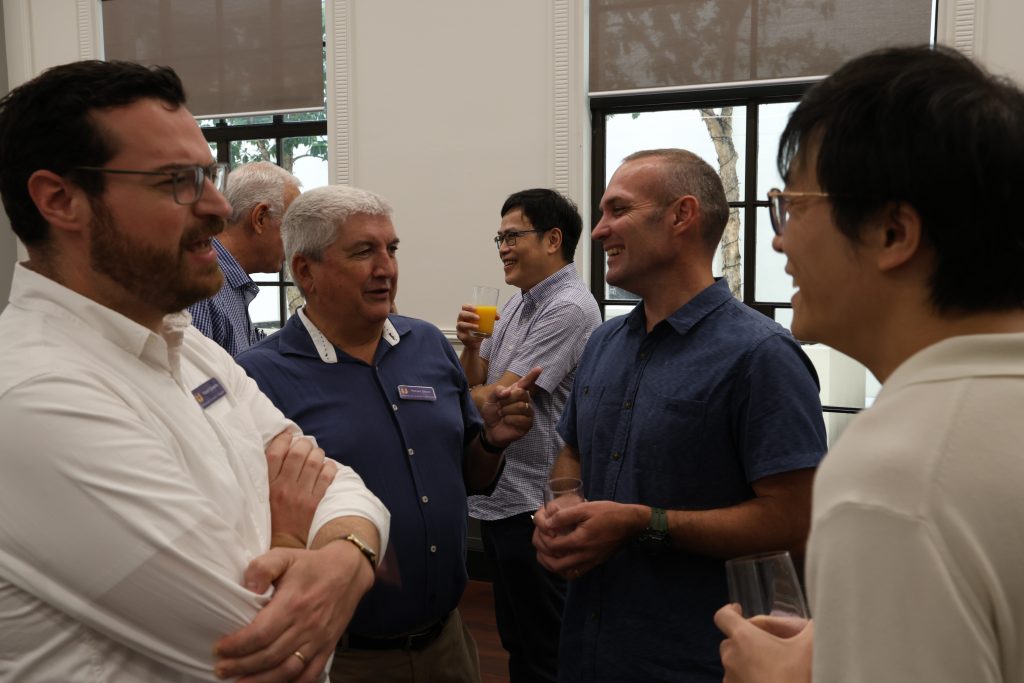
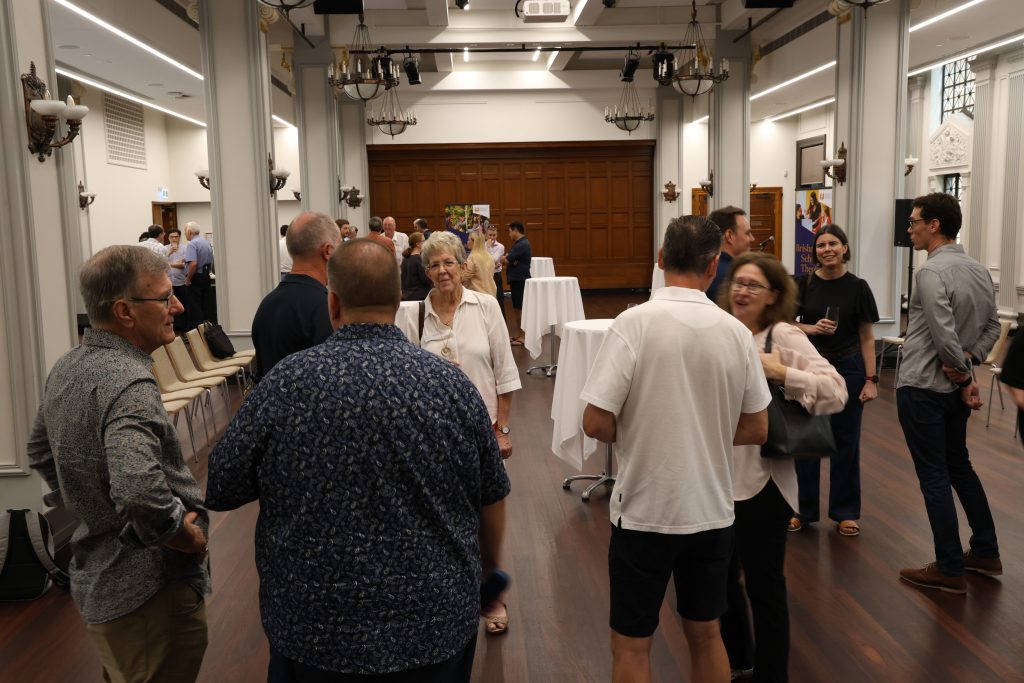
Ministry Leaders' Lunch
We were honoured to host the Ministry Leaders’ Lunch on Thursday, 15 February, for over 35 pastors, mission, and ministry leaders to gather together over a delicious meal. The event was held at Brisbane City Hall thanks to a venue credit gifted to us by Christians Against Poverty.

New students on campus
We have been loving being on campus these past few weeks. Chapel is full, lunches are lively, and our classes are alive with fantastic discussion and learning. We are grateful to God for the large cohort of new students joining us this semester. Check it out here!

Have you had "The (tech) Talk" with your kids?
Questions to consider for parents and church Leaders
Instagram, TikTok, game chat, forums, X (formerly known as Twitter), Whatsapp, Signal…. The list goes on with the numerous ways young people engage with technology. This has opened a world of opportunity and connection, which is a wonderful thing. But where there are children, there are predators.
As adults we need to educate ourselves on how technology is used and manipulated by predators so that we can protect our children. We need to help guide children through their technology use calmly and clearly.
Children need to be taught about what is and isn’t OK online, just like they learn what is safe in real life.
When they are learning to ride a bike you are alongside them, guiding them and protecting them from veering into oncoming traffic or down a steep gully. The same goes for their internet use. They need direction on what is and isn’t OK and where to go for help. If they don’t hear it from you… Who will tell them?
Here are some helpful questions for parents to get you started:
- Do I know what my child is doing on the internet/mobile?
- Have you seen what personal identifying details your child has up on their profiles?
Tip: If you can see their school uniform, club uniform, or church—then a predator knows where they can be found and at what times.
- Does your child know they can talk to you if things get ‘weird’?
Tip: Predators will pretend to be a child to make connections and elicit information. If your child starts to sense something is weird, do they know they can stop talking to the person and how to block/report them? Do they know that you will listen without getting angry? As Christians we often teach children that they should be polite, kind, and patient with others. This can cause harm for a child in an online grooming situation. See resources below on how to save chats, as that can be important for police in a future investigation.
Questions for church leaders to get you started:
- Do you post pictures of your events on social media that include children?
Tip: If you can see a child and the details of the church, then predators can find and contact that child.
- Do you have clear guidelines for online behaviour for your ministry leaders? How do you check they are following this—apart from asking them?
Tip: People lie. We need to have multiple ways to check our policies are being implemented to keep everyone safe.
- Have you considered running an info session for parents to talk about online safety with their kids? Do parents know how to talk about personal safety with their children in real life as well as online?
- Do the young people in the church, children’s ministry and youth group know who they can tell if a church member is acting inappropriately with them?
- How do you as a community talk about issues like sexting, pornography, safety and healthy relationships?
Tip: If you don’t talk about it, kids learn that they shouldn’t talk about it with you either. This will prevent them reaching out to you if they are being groomed or abused.
It is not a one-off conversation.
We need to have multiple conversations with our children, and with each other, to keep children safe.
See these resources for more information and practical steps to keep kids safe online:
The Queensland Police have released a handbook for parents and concerned family members to protect their children. Who’s Chatting to your kids: https://www.police.qld.gov.au/policelink-reporting/reporting-cybercrime/children-and-the-internet/whos-chatting-to-your-kids
Think U Know is an online safety program that you can book with the police service: https://www.police.qld.gov.au/initiatives/thinkuknow
The eSafety commission has a great webpage to guide you through tech questions: https://www.esafety.gov.au/parents

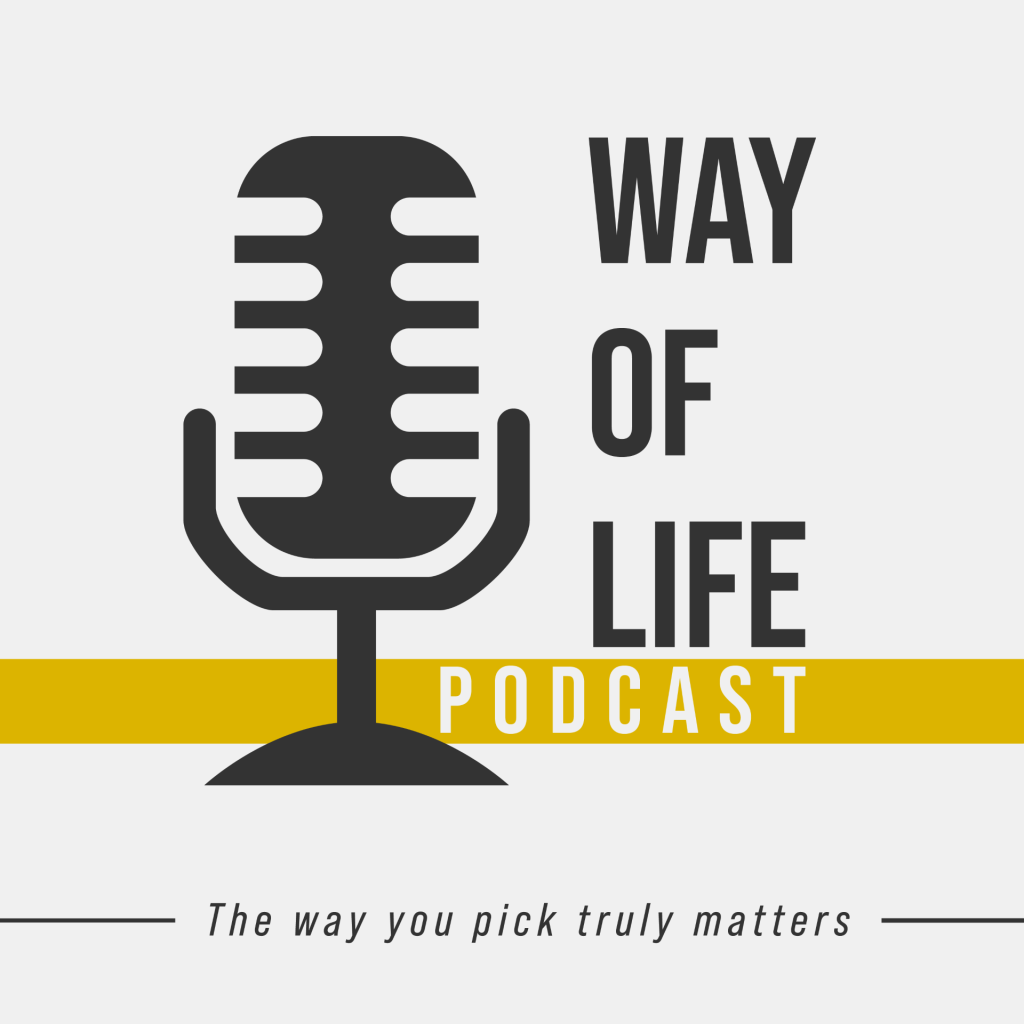
Way of Life Podcast
Mathew Thomas graduated from BST in 2018 with a Bachelor of Theology and is now the Youth & Young Adults Pastor at Wynnum Baptist Church. Mat’s passion is to share God’s love and teachings with the younger generation, inspiring them to discover Jesus.
He is also the creator and host of Way of Life Podcast. Check it out on a variety of platforms using this link https://linktr.ee/
Way of Life Podcast:
At Way of Life Podcast, we see that everyone picks a way of life and that the way you pick truly matters. We therefore interview professionals from all around the globe on life’s most important topics. Wherever you are at we invite you to wrestle with Jesus’ claim that he is the best way of life (John 14:16).
Latest Episodes:
- Spiritual Conversations: How to have conversations like Jesus with Steve Forward
- Health and Faith: Holistic Christianity – body, mind & spirit with Esther Thomas
- Walking with God in everyday life: Listening for the Spirit’s guidance with Joel Shaw
- Living a Bible lead life: How the bible can help lead your life with Rev Dr Richard Gibson
Check out the Way of Life Podcast at https://linktr.ee/
